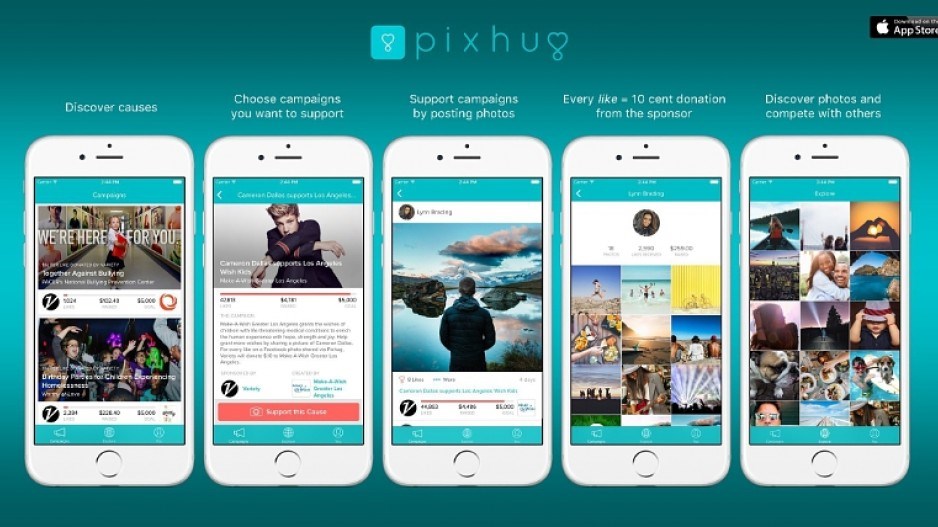Social media can be a polarizing environment; demonstrating support for a social cause can often be met with charges of vanity and accusations that the poster is trying to look good while doing nothing to actually help.
A new app, Pixhug, aims to change that by turning Facebook likes into ten-cent monetary donations and turning social media users into philanthrapists.
“Our mission is to make it easy for everyone to do good and turn social media into a socially responsible place,” said Mia Rajkovic, co-founder and vice president of Pixhug.
“Pixhug turns ‘slacktivism’ into activism.”
Pixhug serves as a marketing platform that aims to bring awareness to the corporate social responsibility its clients are engaging in. North American companies donate over $20 billion to different causes each year, and Pixhug wants to bring those donations to the forefront by highlighting them on social media. Companies can work with Pixhug to choose a charity and develop a social media-driven fundraising campaign.
“We really are, in a way, like a dating site for charities and corporations,” said Mido Desanti, co founder and CEO of Pixhug..
Pixhug helps to promote the campaign on social media, engaging with online celebrities that have large social media followings. During Pixhug’s beta testing, it ran a campaign for Make-A-Wish. By enlisting the help of Cameron Dallas of YouTube fame, Pixhug was able to leverage his large Facebook following of 3.6 million people. Dallas promoted the campaign on Facebook with a single post which received over 40,000 likes in a few hours, Rajkovic said.
Variety magazine was the corporate sponsor for the campaign and was featured in the Facebook post, and for each like received, Variety donated ten cents. The campaign as a whole reached over 50,000 likes and $5,000 was donated.
Pixhug is currently integrated with Facebook but plans to expand to other platforms including Twitter.
All of the money raised by the campaign is donated to the charity. Pixhug charges an additional one-cent marketing fee to the corporate sponsor for each like. According to Desanti, businesses are willing to pay the additional fee in order to gain the exposure for their charitable endeavours.
“It’s not enough just to give money; you have to communicate that donation somehow to your consumers and ultimately build that brand equity into your DNA,” said Desanti. “That costs money and marketing dollars.”
Publicizing a business’ corporate social responsibility can be costly. Pixhug turned that difficulty into a strength by working to engage people on social media. This both advertised a company’s chartiable donations and allowed potential consumers to interact with a brand in a new and unique way, creating a meaningful and memorable experience with that specific brand.
According to Omnicom Group’s Cone Communications, 70% of millennials will spend more on brands supporting causes they care about. In response, more companies are focusing on corporate social responsibility and communicating their endeavours to consumers.




